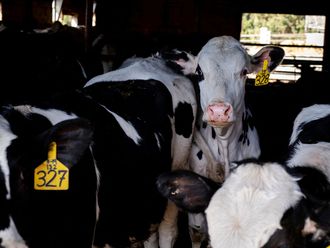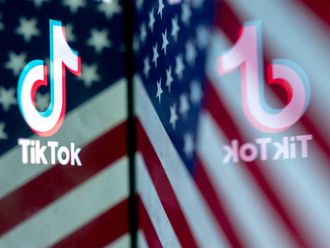Washington: A new round of lacklustre showings by Republican candidates reignited a debate Wednesday within the GOP over whether President Donald Trump will be a drag on the party’s chances in November and should stay out of some of the country’s most hotly-contested races.
Inside the White House, Trump aides are mapping out plans for the fall that would offer a variety of options to Republican candidates, be it a visit from the president’s daughter, Ivanka Trump, to a blue state or a presidential tweet for a red-state ally.
But mounting apprehension about Trump’s political capital lingered in Washington and on the campaign trail.
In a flurry of elections on Tuesday — from the suburbs of Columbus, Ohio, to the technology corridor in Washington state — Democrats turned out in droves and significantly overperformed expectations by posing serious challenges to Republicans in staunchly GOP districts.
Many Republican strategists viewed the results as a dark omen three months ahead of Election Day, saying they illustrate the limits of Trump’s ability to boost candidates, particularly in suburban areas where Trump’s popularity has suffered.
Even in Republican primaries, securing Trump’s endorsement was not a guarantee of electoral success.
“Nothing bodes well,” said veteran Republican consultant Stuart Stevens, a frequent Trump critic. “You look at the amount of money spent on the Republican side in Ohio, the focus put on it,” including a Trump rally last weekend in the district, “and you have an early warning sign. It’s time for Republicans to counteract.”
Trump took a different lesson from the outcomes, crowing in a series of tweets that his presence on the campaign trail and his record could lift his party and prompt a “giant Red Wave!”
“As long as I campaign and/or support Senate and House candidates (within reason), they will win!” Trump wrote.
Despite Trump’s last-minute visit and Republicans dramatically outspending Democrats, Ohio Republican state Sen. Troy Balderson was barely ahead of Democrat Danny O’Connor, an elected county recorder, in Tuesday’s special congressional election in central Ohio. The race remained too close to call Wednesday with thousands of provisional votes still outstanding.
The razor-thin margin comes in a district that Trump won by 11 points in 2016 and that Republicans have held since 1983. Balderson had embraced Trump in the campaign’s final stretch.
The result “reinforces our view that [Democrats] are substantial favourites to retake the House,” said David Wasserman, a non-partisan House analyst for the Cook Political Report. Democrats need 23 additional seats to take over the House majority and two seats to take control of the Senate.
Major GOP groups such as the Congressional Leadership Fund, a super PAC backing House Republicans, spent Wednesday preparing to defend GOP candidates in states from Kentucky to New York. “This remains a very tough political environment,” said Corry Bliss, the super PAC’s executive director.
Balderson was far from the only Republican who underwhelmed on Tuesday.
Rep. Cathy McMorris Rodgers, R-Wash., chairwoman of the House Republican Conference, failed to win 50 per cent of the vote in a primary and will face Democrat Lisa Brown in November. Washington state has a non-partisan primary process where the top two finishers move on to the general election.
All year, McMorris Rodgers has been confronting pointed questions about her support for Trump’s policies.
“I’m just going to keep talking to the people of eastern Washington, listening to them and making sure that they know what my vision is,” McMorris Rodgers said after the election.
In Michigan, where Democrats are aiming to take back the governor’s mansion, voter turnout set records, according to state officials, with more than 2 million votes cast — the most in the state since 1978.
Congressional Republicans were further jolted on Wednesday when Rep. Chris Collins, R-N. Y., a prominent Trump ally, was charged with insider trading by federal prosecutors, who alleged the congressman schemed with his son to avoid significant losses in a biotechnology investment.
White House officials huddling on Wednesday acknowledged that Republican candidates will likely need different types of support depending on the dynamics of each race, said two people briefed on the talks, who requested anonymity because they were not authorised to discuss internal deliberations.
Ivanka Trump is likely to be dispatched to suburban districts to talk about the economy and the workforce, while the president is expected to be on the road at least three or four days a week in swing states like Ohio and in states he won big in 2016, such as West Virginia, the two people said.
Ivanka Trump visited Illinois on Wednesday, speaking at a community college alongside Rep. Rodney Davis, R-Ill. While the visit was an official White House endeavour, Davis is a self-described “Main Street Republican” facing an uphill reelection race. His Democratic opponent, Betsy Dirksen Londrigan, raised more money than he did during the last quarter.
White House officials have been giving President Trump him weekly or biweekly updates on races and showing him polling and pictures of candidates along with the staff or party leadership recommendation of what to do in each contest, according to the people briefed on the discussions.
But Trump doesn’t always listen to advisers and has been driving the strategy himself, informally polling his inner circle about how far he could go on trade policy and a possible government shutdown over immigration policy without crippling the GOP field, according to Republicans involved in the discussions. Republicans working with the White House also pointed to Tuesday’s elections in Kansas as the latest example of the volatility inside the West Wing.
Kris Kobach, the anti-immigration secretary of state who served as vice-chairman of Trump’s now-disbanded voting integrity commission, was endorsed by Trump in the Kansas gubernatorial primary less than 24 hours before polls opened. Some aides and top Republicans had urged him to hold off on endorsing Kobach, who they fear could threaten other Republicans running this fall due to his hard-line positions. The race remained too close to call Wednesday, with Kobach holding a lead of fewer than 200 votes over incumbent Gov. Jeff Colyer.
But it was in the suburbs, more than ruby-red enclaves, where Republican nerves were fraying most on Wednesday.
A July poll published by NPR, PBS NewsHour, and Marist College found that 36 per cent of suburban adults approved of Trump, while 59 per cent disapproved, a more negative rating than among Americans overall. The same poll found just 18 per cent of suburban adults approving of the job Republicans in Congress were doing, while 72 per cent disapproved.
In Ohio, Balderson’s alignment with Trump was uneasy, as the low-key state lawmaker suddenly began belittling his opponent with Trump-style nicknames. The situation reflected broader discomfort among traditional Republicans over how to energise Trump’s core voters while also courting moderates.
“They’re frozen in the headlights,” Republican strategist Mike Murphy said. “Everyone’s in this defence crouch. They’re afraid of getting on the wrong side of their base and afraid of general election voters.”
Those tensions have only escalated within the GOP over the past year, starting with last year’s special congressional election in the Atlanta suburbs, which Republicans narrowly won, to another special congressional election in March in Pittsburgh’s suburbs, which was won by Democrat Conor Lamb.
Trump allies maintain that the president is the Republican Party’s best asset and said his involvement will be critical to stoking the enthusiasm of base voters in the fall.
“The president is a real help for the midterms and we should recognise that,” said Rep. Mark Meadows, R-N. C. “The problem is when people can’t decide whether to support him or make some sort of lukewarm effort to play to the middle. You can’t half-embrace the president’s agenda.”
The tricky balancing act facing GOP candidates is apparent on policy. On immigration, most Republicans are eager to rally Trump voters who are clamouring for a border wall to be built — and Trump has been calling for a shutdown of the federal government unless Congress appropriates funds. But they also feel pressure to reassure moderates alarmed by the Trump administration’s abandoned push to separate migrant children from their parents.
And it is apparent on style, where many Republicans are racing to keep up with Trump’s torrent of controversy and strife, whether by donning “Make America Great Again” hats in ads or by hurling schoolyard insults.
“The politics of nicknames is the order of the day and not going away anytime soon,” said Republican consultant Jai Chabria, who long advised Ohio Gov. John Kasich, R. “But beyond President Trump, there were are very few candidates who can actually do the nickname thing very well.”
Kasich, who represented Ohio’s 12th Congressional District from 1983 to 2001 and is considering challenging Trump in the 2020 presidential election, has questioned the stand-proudly-with-Trump approach that was taken by Balderson, whom he endorsed.
“I asked him, I said, ‘Troy, why did you invite Trump in here?’” Kasich recounted on ABC’s “This Week” on Sunday, adding that “suburban women in particular here are the ones that are really turned off.”












